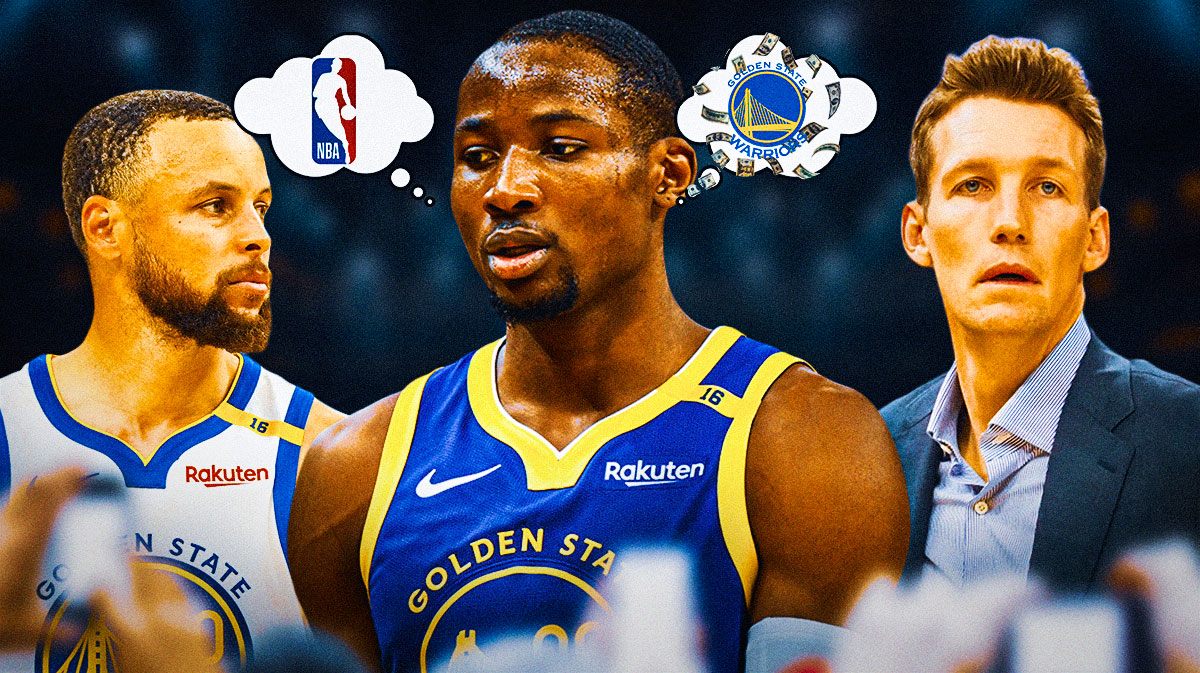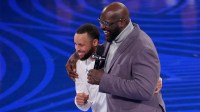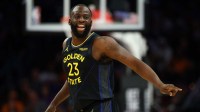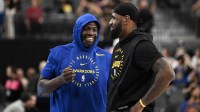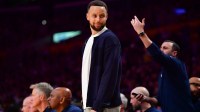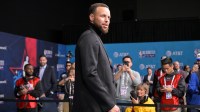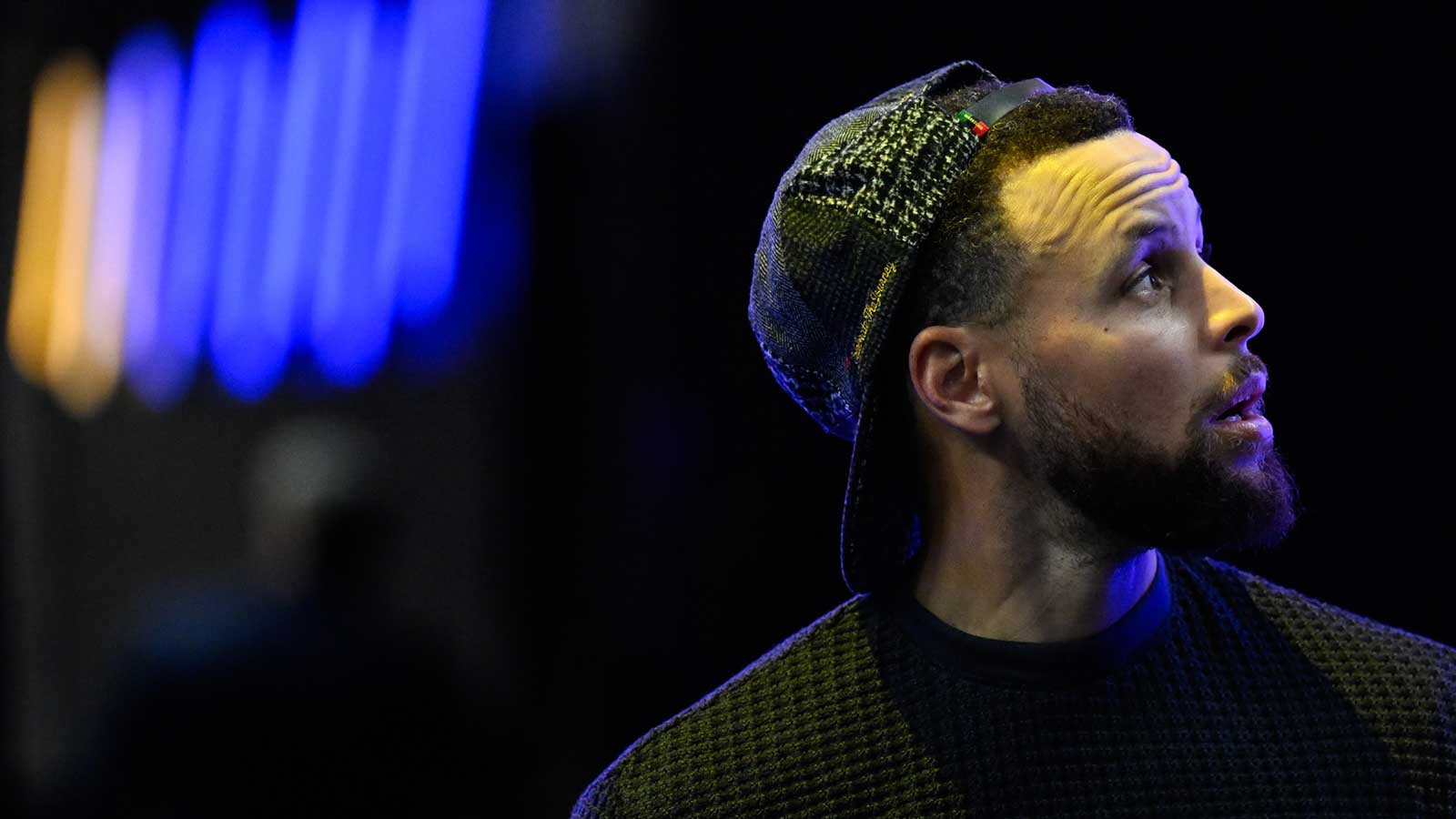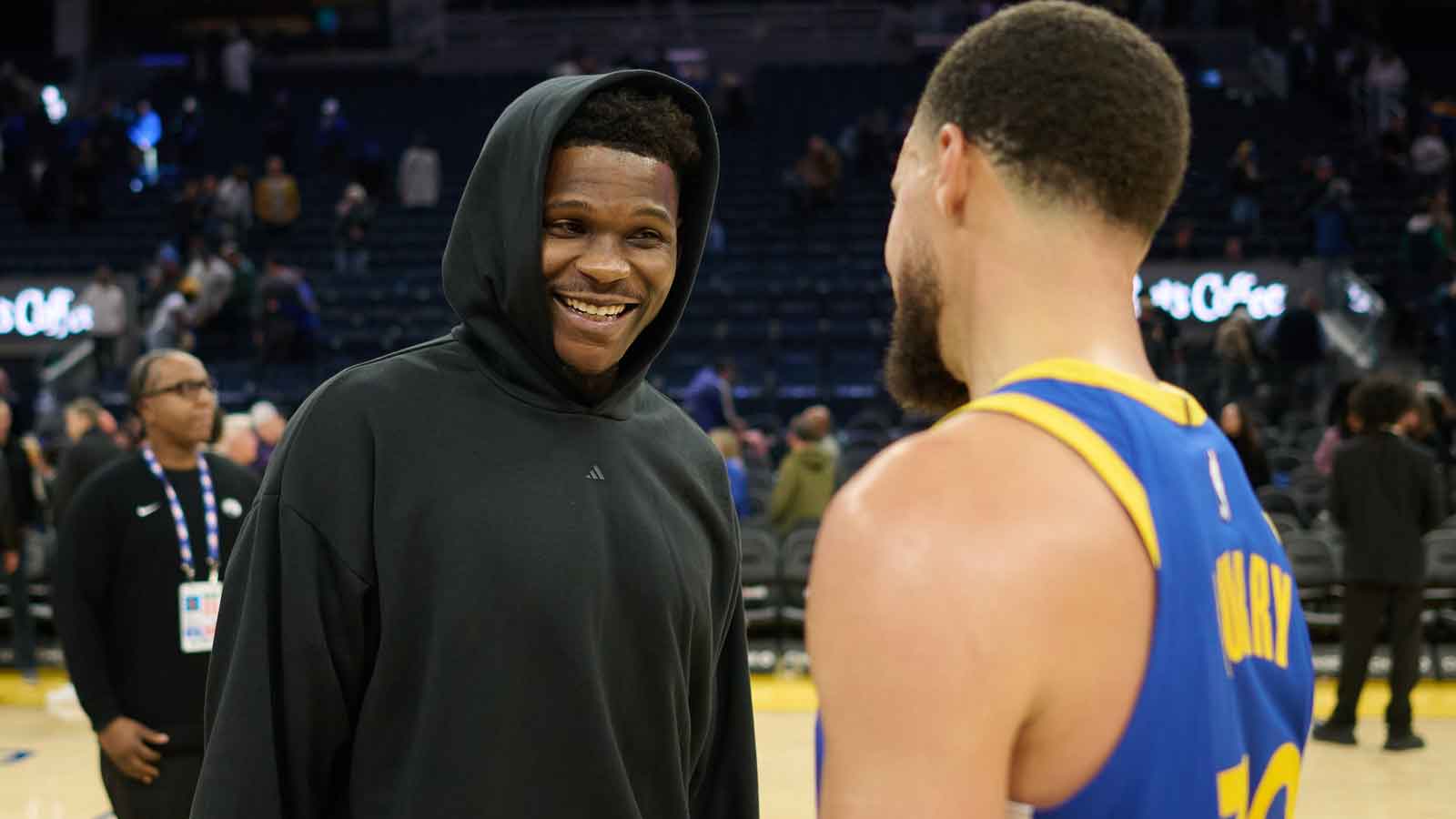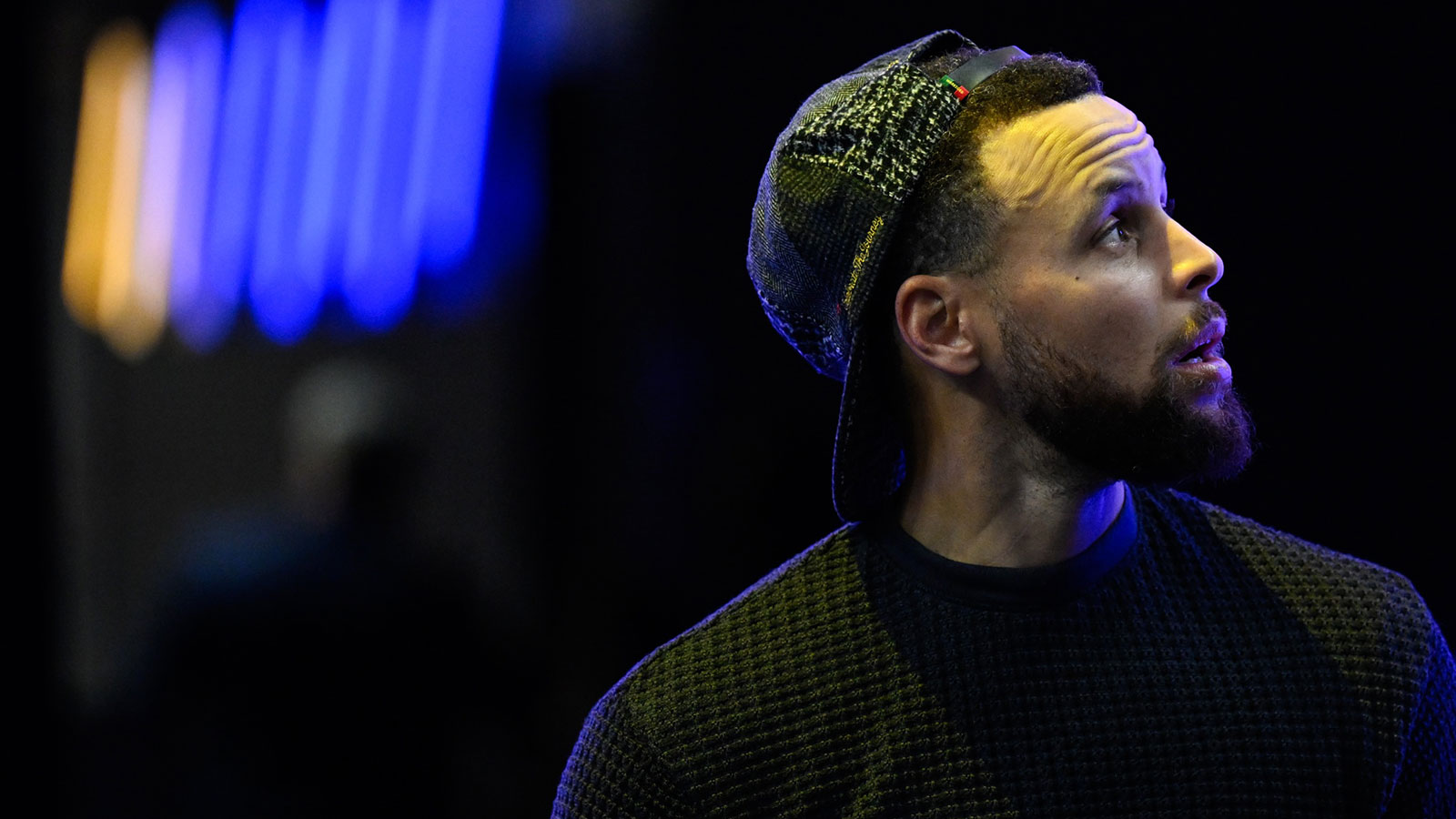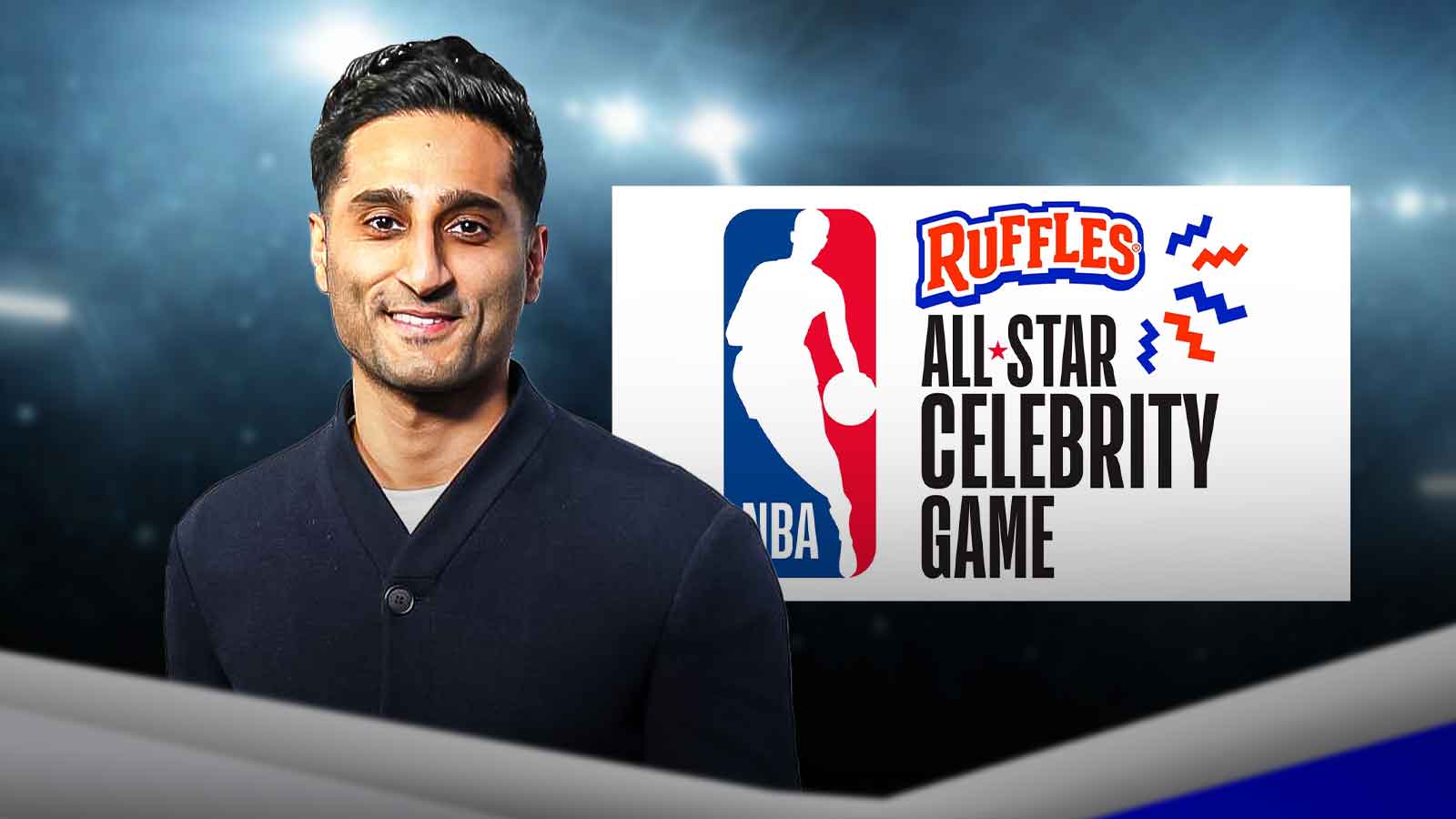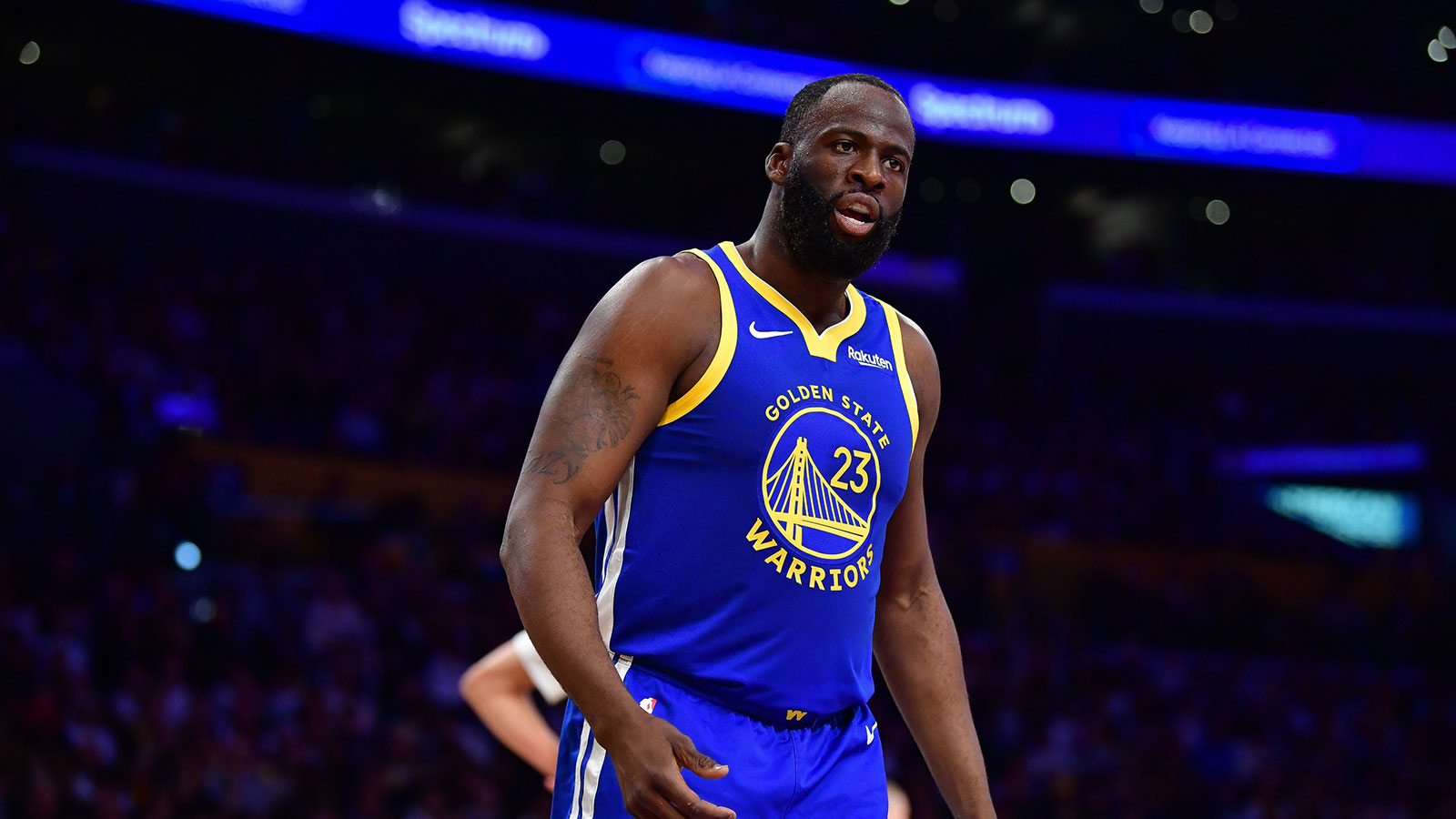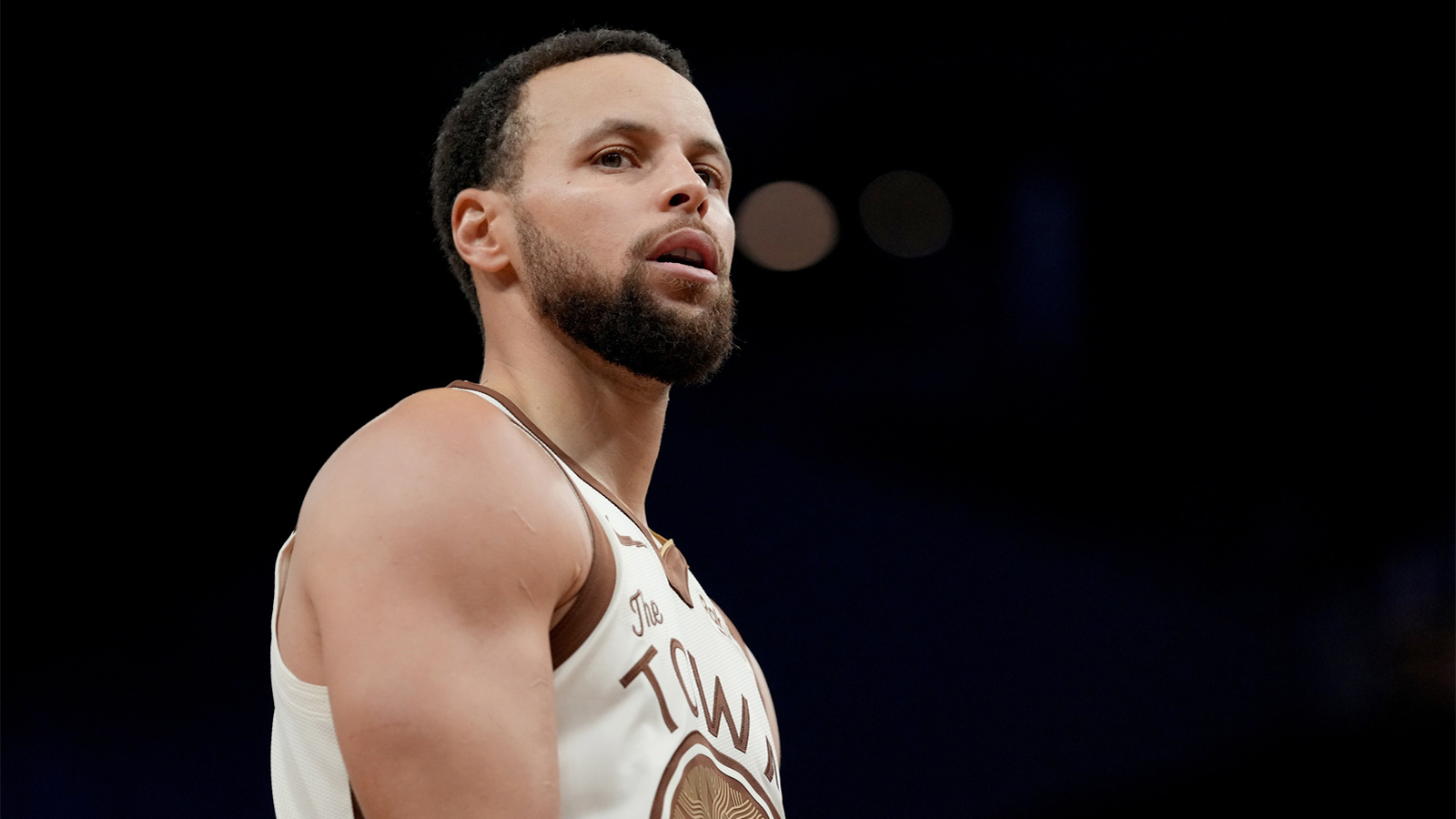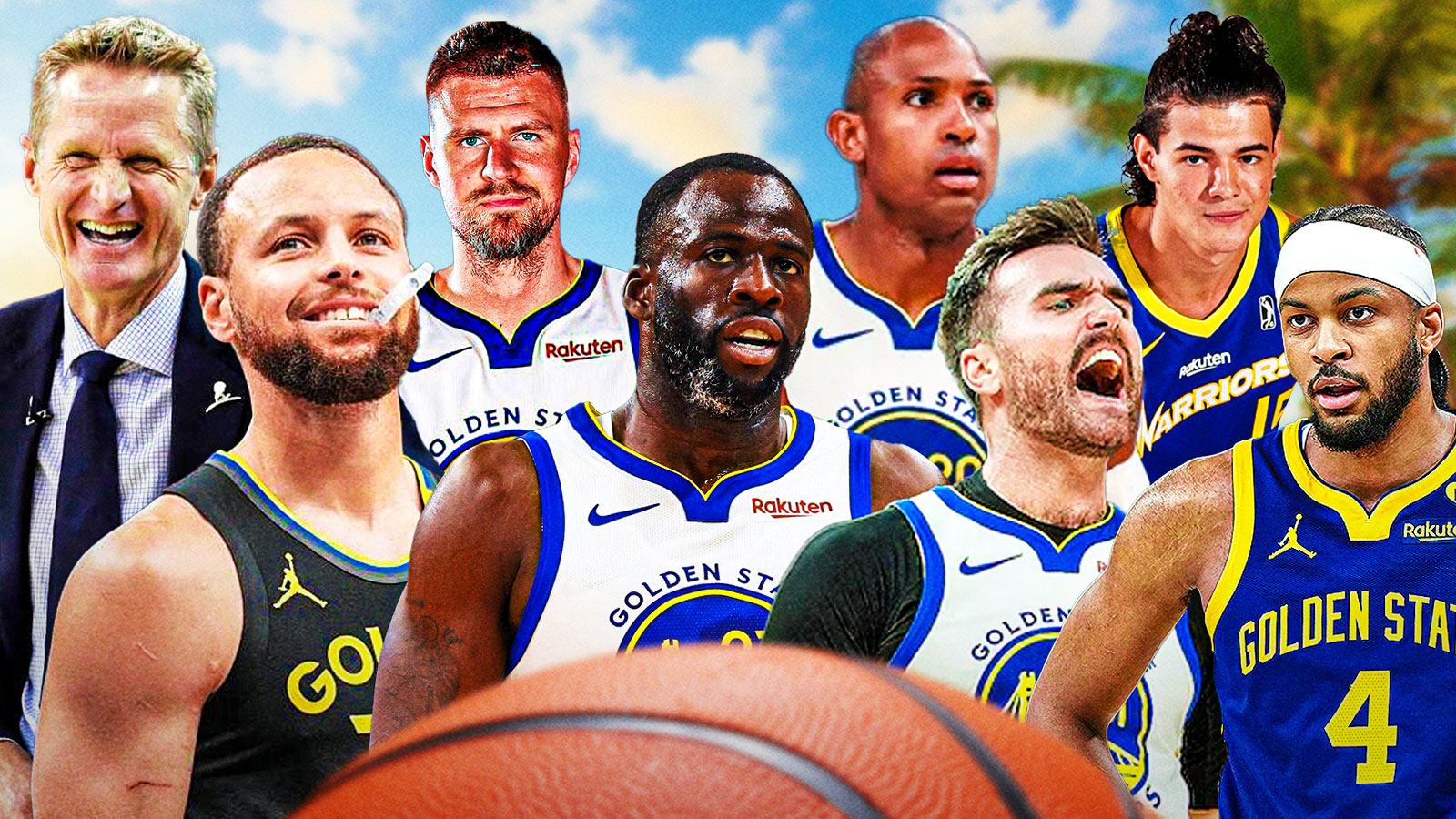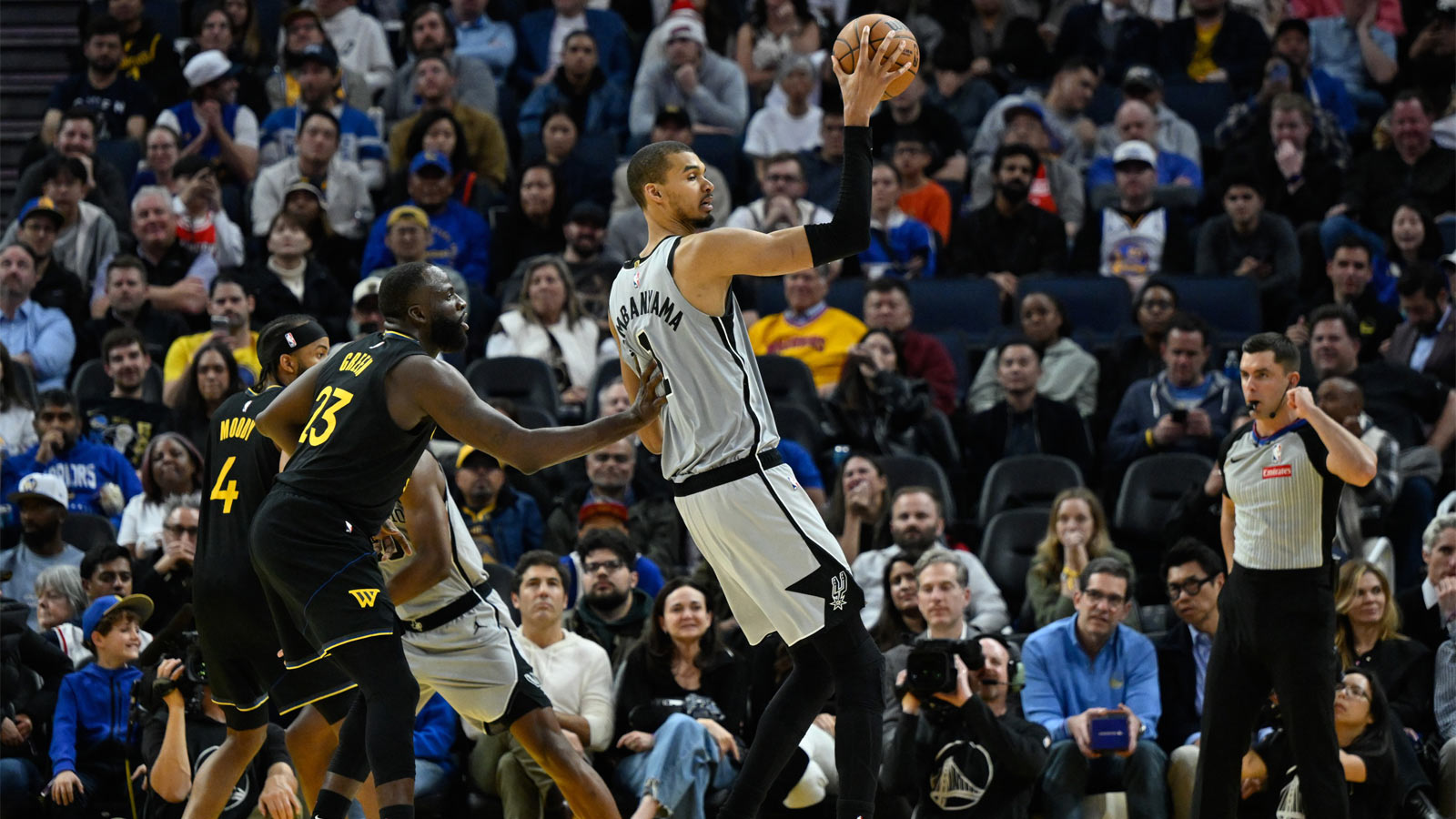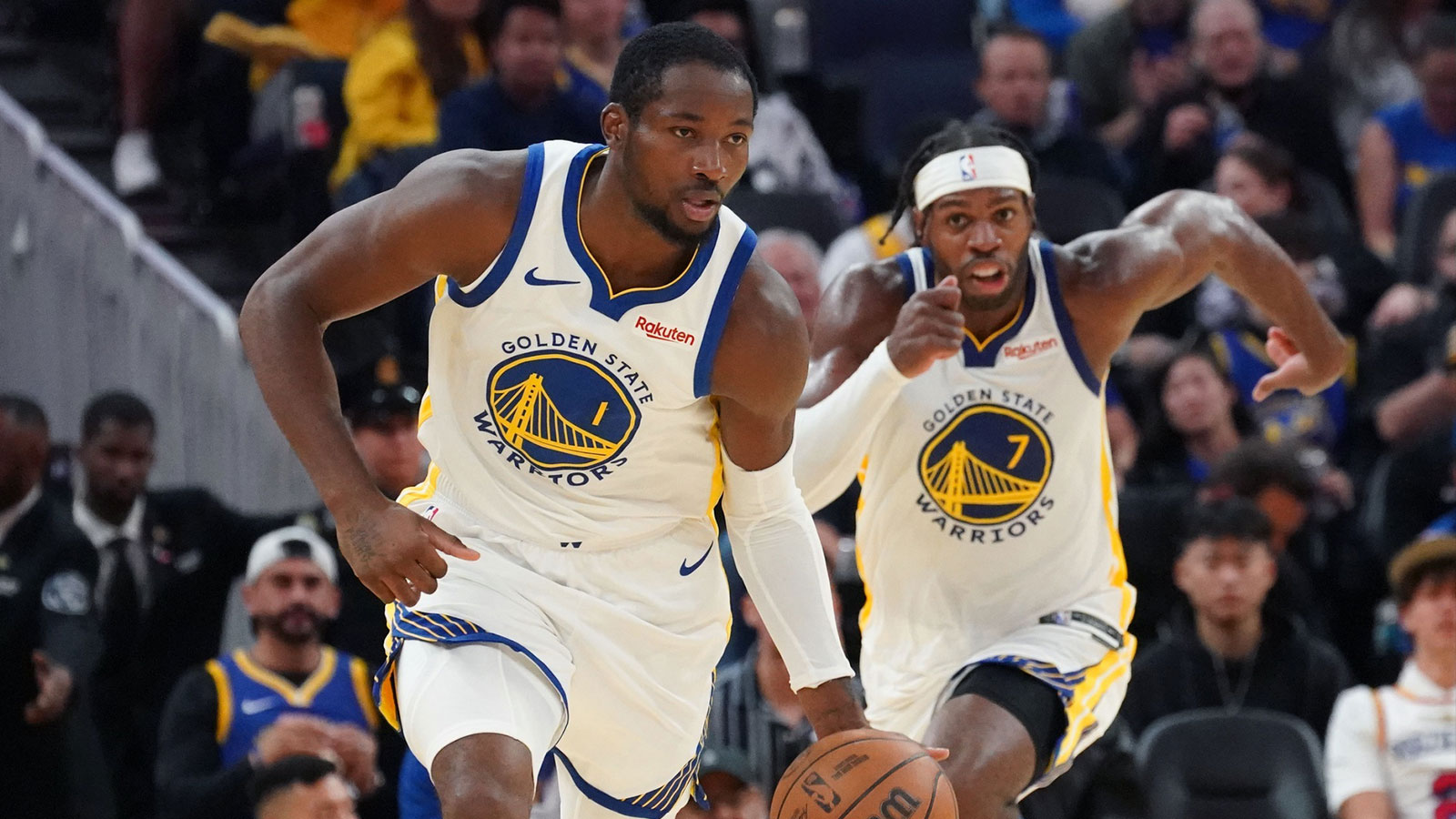The standoff between Jonathan Kuminga and the Golden State Warriors has been the main talking point of the NBA offseason and free agency. Since no team in the league has cap space other than the Brooklyn Nets, and with Kuminga being a restricted free agent, his market has been extremely limited to this point.
While the Warriors expected a vast sign-and-trade market for Kuminga this offseason, with multiple teams presenting desirable packages for the 22-year-old forward, that has not been the case.
Only the Sacramento Kings and Phoenix Suns have engaged in sign-and-trade discussions with Golden State, none of which have progressed to a serious level, league sources told ClutchPoints.
As a result of no value existing from other teams, in addition to wanting to bring Kuminga back with the idea of trading his full cap number down the road, the Dubs have cut off all talks of a potential sign-and-trade scenario.
This is a strategic move by the Warriors, especially considering both the organization and player have been attempting to create leverage over one another. Although Mike Dunleavy Jr. and Joe Lacob still hold the most leverage in these negotiations with Kuminga, he could still technically opt for his $7.9 million qualifying offer to “bet on himself.”
However, this would be a very risky path for the young forward to take, considering that millions of dollars would be left on the table and Kuminga would be hoping that money exists a year from now.
Well, a lot can change in a year.
The free agency landscape will look different. Teams that are interested now may fill their need elsewhere. And, most importantly, money always depreciates. Not to mention, Kuminga accepting his qualifying offer would be a massive slap in the face to the Warriors since he would receive a full no-trade clause and create an even more toxic situation.
The idea of accepting this qualifying offer is still very much in play, but it does appear this is a negotiation tactic by Kuminga's side to try and utilize any ounce of leverage they have in the standoff.
Kuminga does not want to be back with the Warriors given the lack of opportunity and playing time that present themselves in Steve Kerr's rotations, which is why he would much rather find a new home this offseason.
Unfortunately for Kuminga, the Warriors are not prepared to let him walk for nothing, and that is essentially what the sign-and-trade market has provided the franchise with.
So, now that we are a full week into August, what should we expect from Kuminga and the Warriors?
Despite the notion that he wants a fresh start and has declined several contract discussions from Golden State, the clearest path still points in the direction of Kuminga and the Dubs reuniting on a short-term contract.
What contract should Jonathan Kuminga receive?
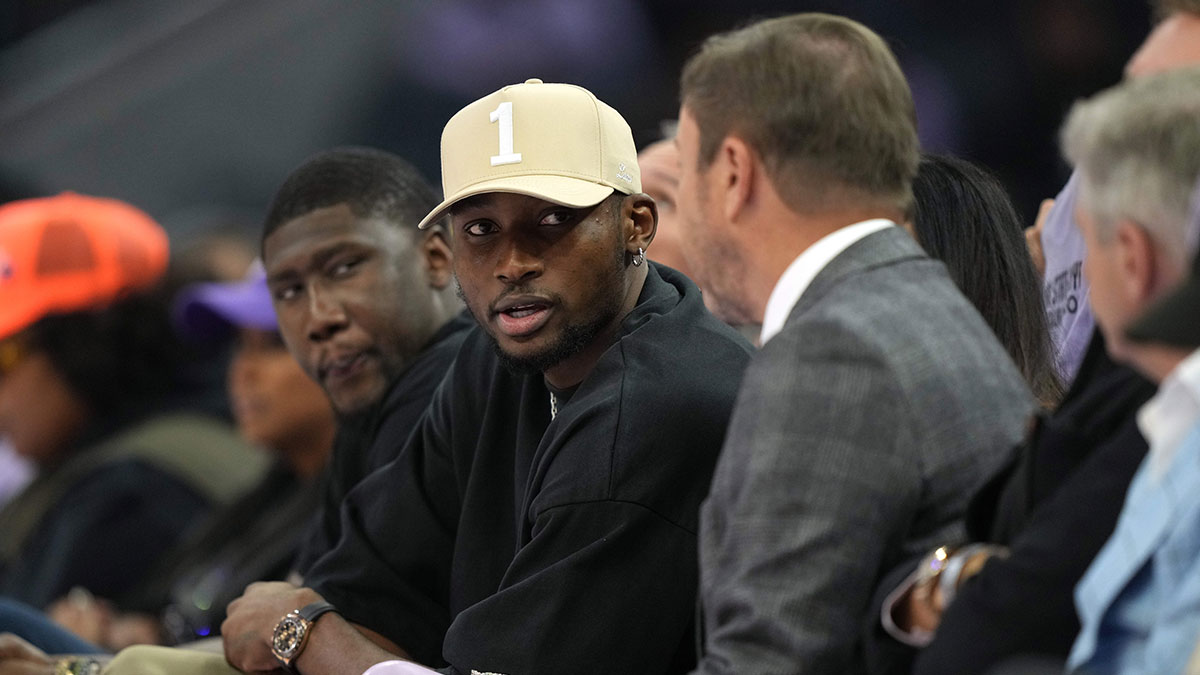
Kuminga and his camp made it clear when the offseason began that they wanted a contract that was comparable to other young, unproven talents who recently signed an extension.
The one player Kuminga had been constantly compared to in contract negotiations was Jalen Johnson of the Atlanta Hawks, who recently signed a five-year, $150 million extension before his breakout campaign.
If he were offered anything in the ballpark of $30 million in annual average value, Kuminga would have accepted such an offer from the Warriors. However, Golden State has not exceeded an offer in the $20 million to $23 million AAV range simply because of what Kuminga's role on this team is.
At best, Kuminga could be the No. 3 scoring option moving forward, but he won't usurp Stephen Curry or Jimmy Butler in terms of being “the guy.” Of course, that changed in the playoffs when Curry was out with a hamstring injury and Butler was dealing with a tailbone injury.
The bottom line is that Kuminga's value is not in the $30 million-per-year range. That is evident by the offers he's received from the Kings and Suns in sign-and-trade discussions.
Whereas Sacramento is willing to give Kuminga a three-year, $63 million contract ($21 million AAV), according to Sam Amick of The Athletic, Phoenix would go one step further. In their brief talks with Kuminga and the Warriors, the Suns' offer presented itself as a four-year, $90 million contract ($22.5 million AAV), according to Duane Rankin of AZ Central.
As reported on ClutchPoints and confirmed by other outlets, Kuminga's offer from the Warriors fell in the $20 million to $23 million range. ESPN confirmed this structure was a two-year, $45 million deal containing a team option in Year 2 and Kuminga needing to waive the implied no-trade clause he would receive.
When comparing values between the three teams and taking Kuminga's needs into account, it still makes the most sense for him to cash in on his production thus far and “bet on himself” by proving that he has what it takes to grow into a potential star by excelling in his role with the Warriors.
That is why a short-term deal with Golden State makes the most sense.
Here is the hypothetical proposed deal that outlines exactly what would be fair value for Kuminga and the Warriors to reunite and smooth things over before the trade deadline in February:
- Two-year, $45 million contract [$21.7M in 25-26 season; $23.3M in 26-27 season]
- Partial guarantee of Year 2 salary ($11.65M guaranteed for 26-27 season)
- Kuminga waives the no-trade clause he receives
- Mutual understanding of a trade before the trade deadline
Although this deal tends to favor the Warriors more than Kuminga, especially since he has held out this long, the young forward doesn't have many other options at this time other than waiting even longer.
Should this happen, his value will only decrease with teams no longer waiting for him, and he runs the risk of losing out on a lot of money — $33.35 million of which is guaranteed in this two-year proposal above.
Let's take a look at everything from Kuminga's point of view and why this is the best option for him to continue his career outside of Golden State.
How this deal benefits Jonathan Kuminga
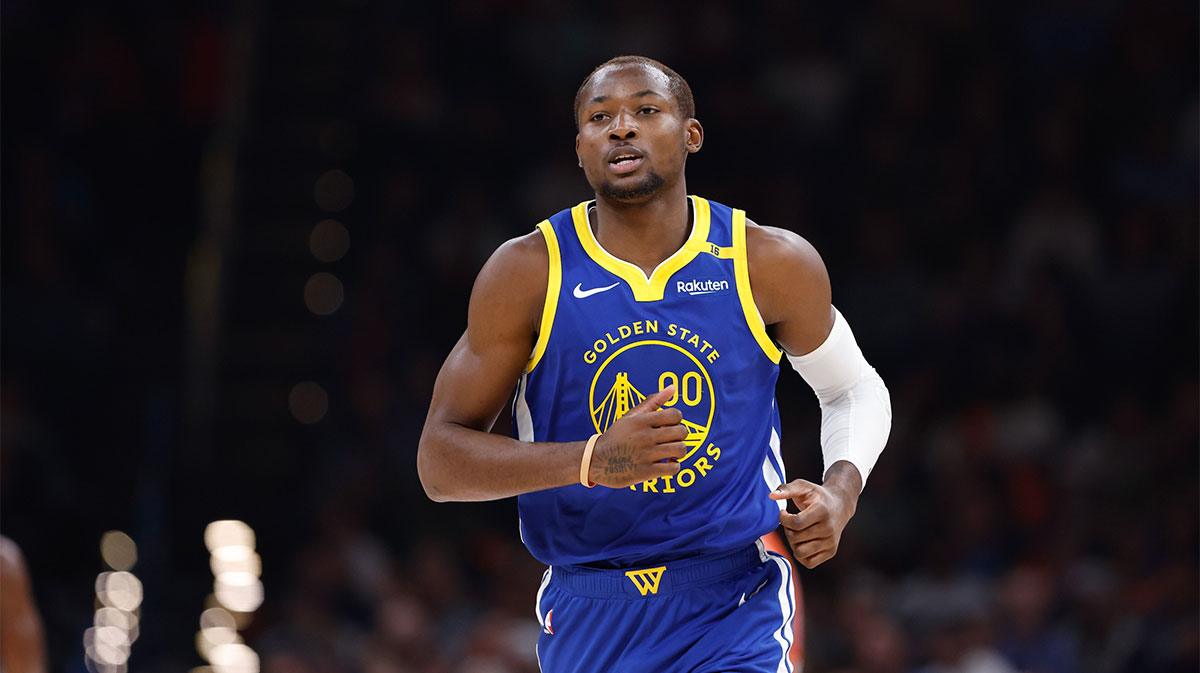
At the end of the day, the holdup in the negotiations between Kuminga and the Warriors comes down to two things.
The first is whether Kuminga truly holds zero intentions whatsoever to once again wear a Warriors uniform, even if it's for a short amount of time, and the second revolves around money. That green stuff is a major motivational tool, and many players tend to fold in negotiations when all is said and done to accept the high mark being offered.
A similar path could happen here with Kuminga, as he is only 22 and could earn the most money with the Warriors' short-term offer before hopefully, for his sake, cashing in on a much larger deal down the road.
The main reason Kuminga and his camp have turned down the Dubs' two-year, $45 million offer is because of a team option in the second year of the deal. Then again, this isn't all that bad, as Kuminga could become a free agent in 2026 and sign an extension with a new team he potentially gets traded to with this proposal.
In the hypothetical deal outlined above, which contains a partial guarantee on a new contract, Kuminga can still be traded freely by the Warriors, but he gets more money for waiving his no-trade clause.
There is a huge difference between accepting a $7.9 million qualifying offer and taking $33 million in guaranteed money over two seasons. Players should always take the money when it is offered, as you never know what happens year-by-year in the NBA, especially when it comes to injuries.
Even though he would be returning to the Warriors, Kuminga would end up on a new team sooner rather than later and be eligible for an extension at his price.
How this deal benefits Warriors
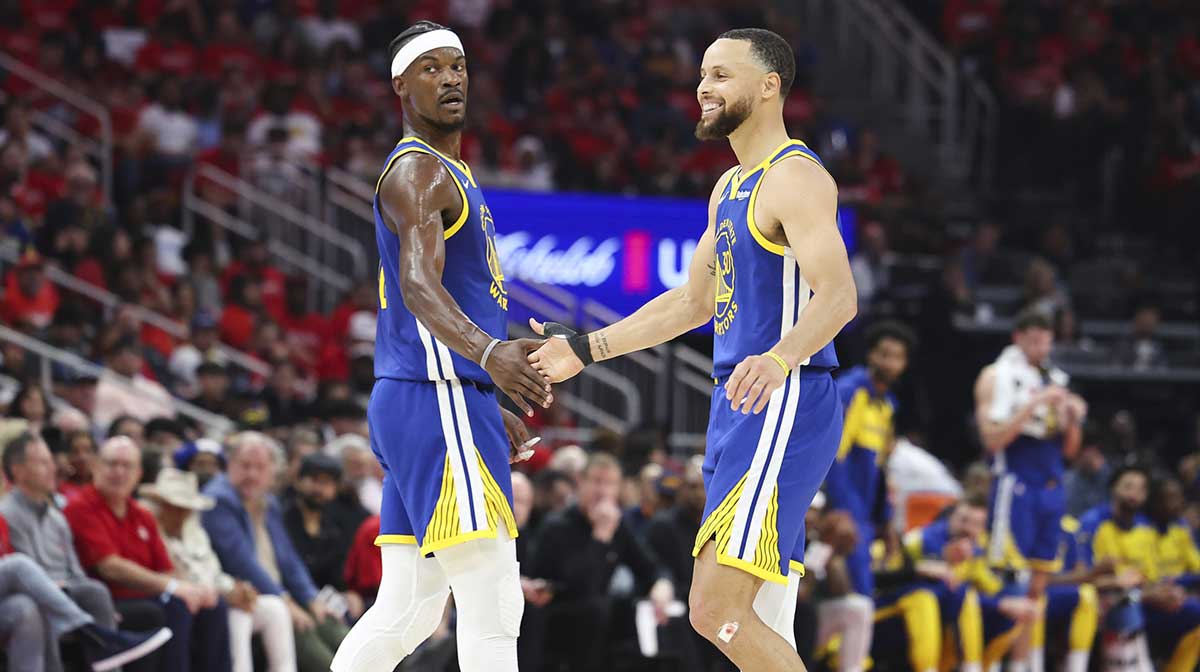
The best deal that the Warriors could do for themselves is the two-year, $45 million offer with the team option and waived no-trade clause that is on the table already.
This basically ensures that they control Kuminga's future at a reasonable price and keep flexibility open for the player to agree to a new contract with whatever team he ultimately gets traded to. Although this appears as if it would be a win-win for both parties, Kuminga's side has continued to push back given the notion that he doesn't want to play for the Warriors.
If the Dubs were willing to adjust their offer, which has not been the case yet, they could offer Kuminga more guaranteed money instead of full team-option control for the 2026-27 season.
By doing this, the Warriors would make the options a $7.9 million qualifying offer or $33 million in guaranteed money on a “1+1” contract structure.
Accepting the qualifying offer is basically Kuminga telling the Warriors that he hates them and wants no part of them, yet he would be returning and pretty much locking himself up with them for the entire year.
At least the Dubs' current proposal, as well as this hypothetical one, opens the door for a trade a few months down the line before February's trade deadline.

